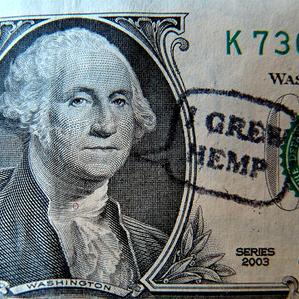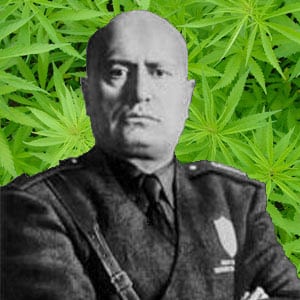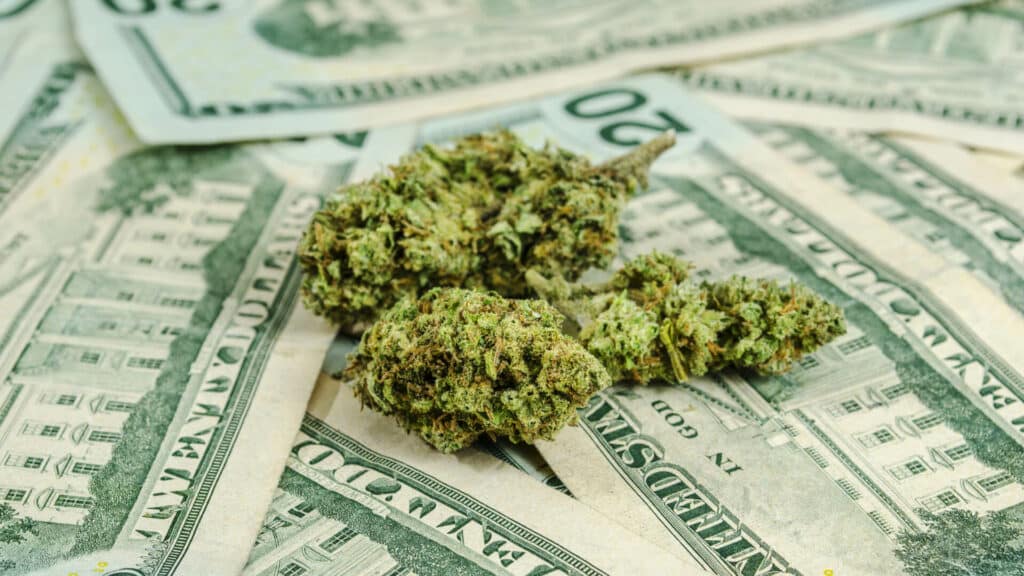According to a report by Jon Gettman, who has a Ph.D. in public policy and regional economic development from George Mason University, the war on cannabis costs U.S. taxpayers $42 billion per year.
Gettman is also the leader of the Coalition for Rescheduling Cannabis, and is the former head of the National Organization for the Reform of Marijuana Laws.
He based his calculations on U.S. government statistics and official federal reports, concluding that the business of cannabis in the country is worth $113 billion dollars. If taxed, the potential revenue stream from taxing this local economy would be significant.
What this means is that every year, instead of using those billions to help the American people, the government spends billions monitoring, arresting and jailing its citizens . . . all because of The Marijuana Tax Act of 1937.
How did we get here? When America was first founded, hemp was cultivated by everyone–included George Washington and Thomas Jefferson. Hemp was grown for rope and paper. Yes, the Declaration of Independence was written on hemp, and hemp’s relative, cannabis, was prescribed as a cure for a variety of medical ailments.
 Hemp grows at a faster rate than timber. Hemp paper is naturally non-polluting and acid free, since converting trees into paper requires a highly toxic procedure known as the wood pulp sulfide process.
Hemp grows at a faster rate than timber. Hemp paper is naturally non-polluting and acid free, since converting trees into paper requires a highly toxic procedure known as the wood pulp sulfide process.
One man, William Randolph Hearst, made quite a profit from his pulp timber and paper mills. Hemp paper was superior, but the process to produce it was labor-intensive. Hearst and the Dupont company, which held the patent on the wood pulp sulfide process, made a lot of money turning trees into paper.
When an invention called the decorticator began to catch on in America in 1935, Hearst and Dupont stood to lose a fortune. If hemp could be mass-produced because of the decorticator, which eliminated the need for hours of labor, timber paper would go the way of the dinosaurs.
At the time Dupont’s main source of finance was Mellon Bank. Andrew Mellon was chairman of Mellon Bank and the Secretary of the U.S. Treasury. Pulling strings, he appointed Harry Anslinger as commissioner of the Federal Bureau of Narcotics.
With Anslinger in place, Mellon had nothing to fear. Anslinger was married to his niece. Mellon began to appear before congress in dramatic hearing, citing dubious sources and appealing to prejudice, claiming that smoking cannabis caused everything from dementia to violence to rape.
This was fueled, naturally, by the propaganda campaign waged by Hearst. Even though government and medical studies at the time had long-reported the health benefits of cannabis consumption, Hearst used his publishing empire to generate reports fueled by racial prejudice and dumb hysteria to sway public opinion, and Congress effectively made hemp illegal on Aug. 2, 1937.
Today the same companies that stand to lose from the legalization of hemp and cannabis employ the same strategies to maintain their profit margins. Public opinion is changing, and the discussion to legalize the plant is a lot more mainstream than it once was.
With enough work, proponents for cannabis legalization could possibly overturn decades of ill-conceived legislation to finally make hemp legal again. Perhaps the curse of 1937 might be lifted, and a once-great source of revenue could once again benefit our country.
Voice of Reason
When Harry J. Anslinger was waging his war against cannabis, a cooler head prevailed in the form of New York City Mayor Fiorello La Guardia, who was an opponent of the 1937 Marijuana Tax Act. In response to reports of the “dangers” of marijuana, La Guardia in 1939 commissioned the New York Academy of Medicine to study the effects of smoking cannabis. In the end, the study (released in 1944) disproved all of the claims by Anslinger and all other pot propagandists.
Article from Culture Magazine and republished with special permission




